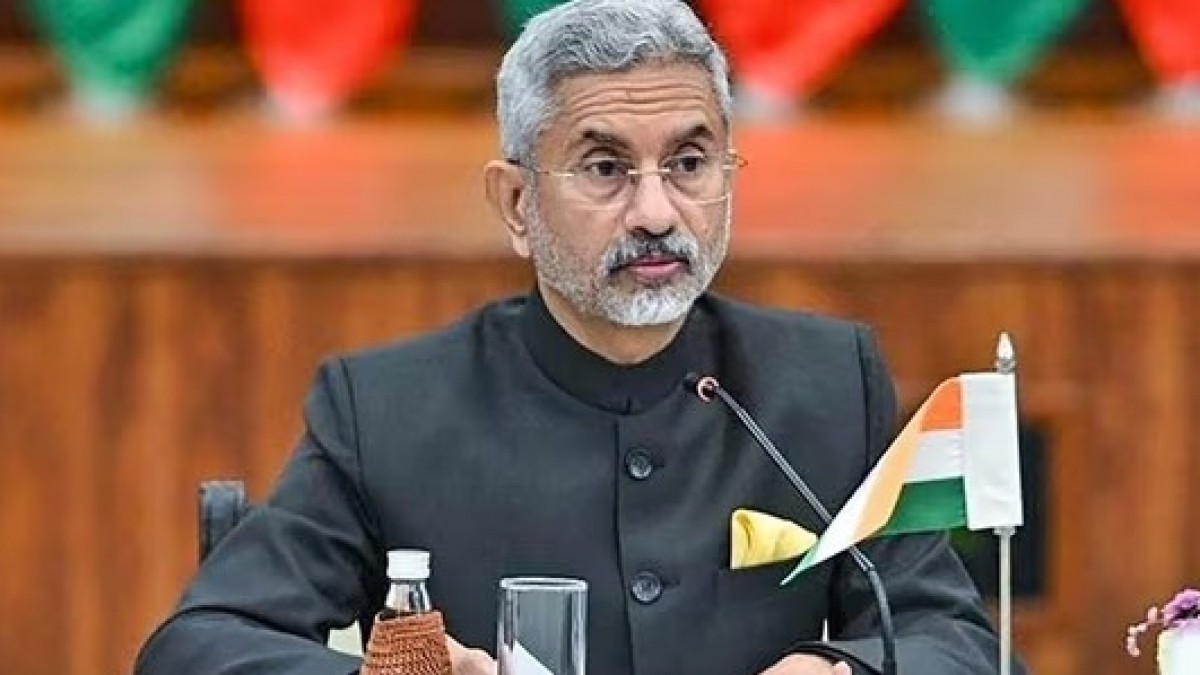India will resume issuing visas to Canadian citizens if it "sees progress" in the safety of its diplomats there, Foreign Minister S Jaishankar has said.
India had stopped visa services in September, saying that "security threats" were disrupting work at its missions in Canada.
The two countries are in the midst of a row over the murder of a Sikh separatist leader in Canada.
Ottawa has said earlier that it takes "safety of diplomats very seriously".
But it has not responded to India's specific allegations about threats to its diplomats in Canada.
Ties between the countries plummeted after Canadian Prime Minister Justin Trudeau said in September that his country was investigating "credible allegations potentially linking" the Indian state to a Sikh leader's killing.
India strongly rejected the allegations, calling them "absurd".
Hardeep Singh Nijjar, a Canadian citizen, was shot dead in his vehicle by two masked gunmen outside a Sikh temple in British Columbia in June. Nijjar was a vocal advocate for Khalistan, or a separate Sikh homeland - a sensitive subject in India, which witnessed a violent insurgency over the demand in the 1980s.
Even before tensions escalated, India had raised concerns about the safety of its officials in Canada, citing threats to them from Khalistan supporters. In July, Canada's Foreign Minister Mélanie Joly tweeted that the country took its obligations regarding diplomats' safety "very seriously" after a poster ahead of a pro-Khalistan rally accused two Indian diplomats of killing Nijjar.
In September, after announcing the temporary suspension of visa services for Canadians, an Indian foreign ministry spokesperson said that its high commission [embassy] and consulates in Canada had received threats which "disrupted their normal functioning". The Canadian high commission also said that some of its diplomats had "received threats on various social media platforms".
Last week, Canada's foreign minister said 41 diplomats had left India - this came after India asked Canada to withdraw dozens of its staff, saying it would remove their immunity if they remained.
Canadian officials have called this a "violation of international law". The US and UK have also expressed concerns over the move.
But on Sunday, Mr Jaishankar said that India's insistence on "maintaining two-way diplomatic parity" was consistent with the provisions of the Vienna Convention on diplomatic relations.
"In our case, we invoked parity because we had concerns about continuous interference in our affairs by Canadian personnel," he said at an event, adding that the relationship between India and Canada was going through a "difficult phase".
"But I do want to say the problems we have are with a certain segment of Canadian politics and the policies which flow from that," he added.
Canada's visa services are still open in India, but it said last week that processing times will be impacted by "reduced staffing levels" after the departure of the diplomats - both Canada and India now have 21 diplomats each in the other country.
Mr Trudeau said last week that India's crackdown on diplomats was making life hard for millions of people in both countries.
Canada has 1.4 million people of Indian origin - more than half of them Sikhs - making up 3.7% of the country's population, according to the 2021 census. India also sends the highest number of international students to Canada - in 2022, they made up 40% of total overseas students at 320,000.
According to Indian government statistics, about 80,000 Canadian tourists visited India in 2021, behind only the US, Bangladesh and UK.
Source: BBC




0 Comments: